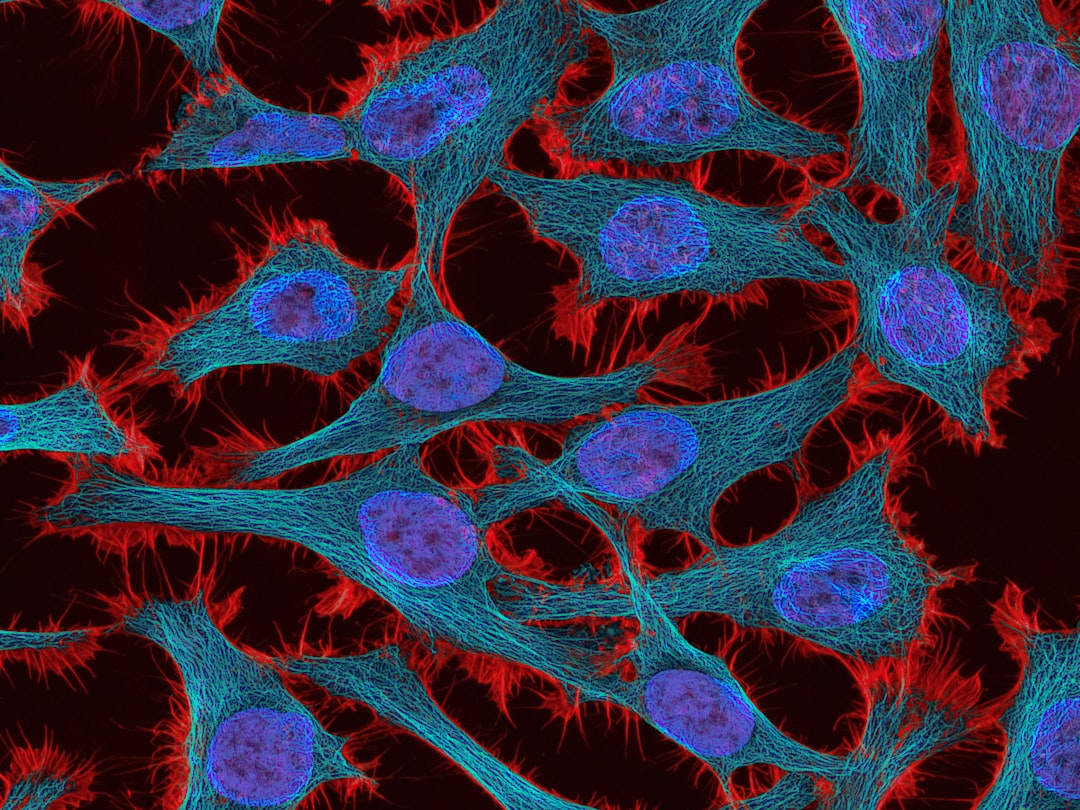What is it about?
High-risk human papillomaviruses (HPV) are the etiological agents of genital and oropharyngeal cancers. Although prophylactic vaccines are effective in blocking initial infection by these viruses, they are not effective against existing lesions. Understanding the mechanisms regulating HPV pathogenesis is therefore important for the identification of biomarkers and for the development of therapeutics. Our work demonstrates that high levels of trimeric RNA: DNA structures called R-loops are present in HPV-positive cells derived from low-grade cervical lesions as well as in squamous cell carcinomas. These elevated R-loop levels are necessary for both viral gene expression and DNA replication. Our studies demonstrate that R-loops are critical cellular regulators of HPV pathogenesis, and they may be useful as biomarkers for viral infection or therapeutic targets.
Featured Image

Photo by National Cancer Institute on Unsplash
Why is it important?
R-loop levels are elevated in HPV positive pre-cancers and cancers. The altered R-loop levels are critical for HPV pathogenesis, providing a possible biomarker for viral infection.
Read the Original
This page is a summary of: p53-dependent R-loop formation and HPV pathogenesis, Proceedings of the National Academy of Sciences, August 2023, Proceedings of the National Academy of Sciences,
DOI: 10.1073/pnas.2305907120.
You can read the full text:
Contributors
The following have contributed to this page










